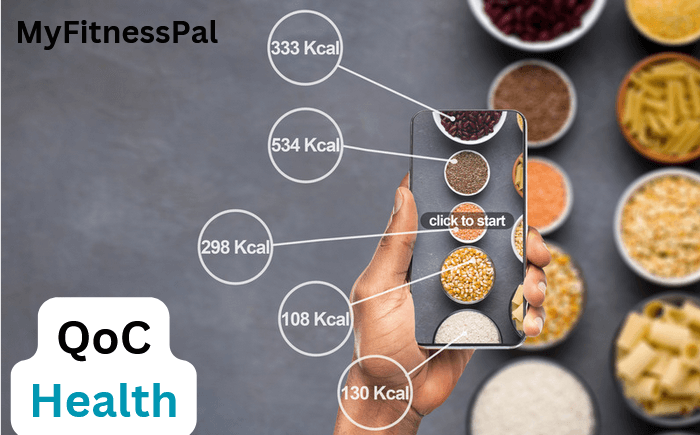Have you ever wondered if MyFitnessPal helps people lose weight? You’re not alone! This popular app claims to make weight loss easier. In this article, we’ll dive into whether MyFitnessPal works for weight loss.
We’ll look at what the app does, hear from people who’ve used it, and understand how it fits into weight loss science.
Let’s find out if MyFitnessPal is a good choice for those looking to shed some pounds.
Understanding MyFitnessPal
MyFitnessPal is a popular app that helps you track what you eat. It’s like a digital diary for your meals. The app counts your calories and shows you the nutrition in your food. You can also log your exercise. MyFitnessPal is free, but there’s a premium version with more features.
The app is easy to use. You can scan barcodes of foods or search for meals and ingredients in its huge database. It adds up all the calories you eat and drink.
You can set goals, like how many calories you want daily. MyFitnessPal helps you stay on track with your diet and exercise goals.
User Experiences and Success Stories
Many people have shared their stories about losing weight with MyFitnessPal. You can find many of these stories on the app’s community forums.
For example, one person lost 50 pounds by tracking her meals and exercise in the app. Another person lost over 90 pounds and said honesty about what you eat is key.
These stories show that many people have had success with MyFitnessPal. The common things in these stories are being consistent and honest.
Users say that tracking every meal helps them understand their eating habits. This makes it easier to eat healthier and lose weight. So, MyFitnessPal can be a great weight loss tool when used correctly.
Scientific Perspective on Calorie Tracking and Weight Loss

The Basics of Calorie Tracking for Weight Loss
Regarding losing weight, science says it’s about burning more calories than you eat. MyFitnessPal helps you keep track of this. It’s simple: you’ll lose weight if you eat less than your body needs.
The app makes counting calories easy. It shows how much you eat and helps you make better food choices. Experts agree that tools like MyFitnessPal are good for managing weight. They allow you to see what you’re eating and find ways to eat healthier.
Calorie tracking is rooted in the principle of energy balance. Consuming fewer calories than your body burns leads to weight loss. MyFitnessPal simplifies this process by providing an easy way to log food intake and calculate daily calorie needs.
This approach is backed by numerous scientific studies that emphasize the importance of energy balance in weight management. By tracking calories, users can understand their eating habits clearly, which is essential for making informed dietary choices.
Related: Fitspresso reviews consumer reports: Can You Really Lose Weight?
Impact of Technology on Calorie Tracking
The integration of technology in calorie tracking has revolutionized weight loss strategies. Apps like MyFitnessPal utilize the convenience of smartphones to make calorie tracking more accessible and accurate.
These tools align with scientific findings suggesting that regular monitoring of food intake contributes to successful weight loss. Technology-enhanced calorie tracking allows immediate input and feedback, making it easier for users to stay within their calorie goals.
Moreover, technological advancements in apps like MyFitnessPal offer features like barcode scanning and a vast database of food items, streamlining the logging process.
This has significantly reduced the barrier to maintaining a consistent food diary, a practice strongly recommended by nutrition experts. Such apps’ accuracy and ease of use have made calorie tracking a more appealing and sustainable practice for those looking to lose weight.
Related: Mobile Apps For Weight Management: Do They Help?
Criticisms and Considerations in Calorie Tracking
While calorie tracking is widely supported by scientific evidence, it’s also important to consider potential criticisms.
Some experts caution against an over-reliance on calorie counting, noting that it can lead to an unhealthy focus on numbers rather than food quality. Additionally, the accuracy of calorie tracking can vary, as self-reported food intake may only sometimes be precise.
Furthermore, focusing solely on calories might overlook other crucial aspects of a healthy diet, such as nutrient density, variety, and overall eating patterns.
Users of calorie-tracking apps need to maintain a balanced perspective, recognizing that weight loss and health are influenced by various dietary and lifestyle factors, not just calorie intake.
Pros and Cons of Using MyFitnessPal
Pros of Using MyFitnessPal
Using MyFitnessPal has its ups and downs. The good part? It has a big list of foods, so tracking your meals is easy. It’s also user-friendly. This means you can start using it even if you’re new to diet apps. It’s great for different diets, too, like keto or vegan.
One of the biggest advantages of MyFitnessPal is its extensive food database. Users can easily find and add their meals to their diaries with millions of foods logged.
This feature significantly reduces the time and effort required to log each meal, making it convenient for users, especially those new to calorie counting.
Another positive aspect of MyFitnessPal is its adaptability to various dietary preferences and needs [1]. Whether following a ketogenic diet, veganism, or any other specific nutritional regimen, the app allows you to track the nutrients that matter most to your diet. This customization helps users stay aligned with their dietary goals.
The app’s user-friendly interface makes it accessible to everyone, regardless of their tech savvy. This inclusivity ensures that a wider audience can benefit from its features without feeling overwhelmed.
Related: Do Mobile Apps Really Work for Weight Loss?
Cons of Using MyFitnessPal
But there are some downsides. Logging your food every day takes time. Sometimes, the calories you enter need to be corrected. Focusing only on calories might make you forget about other important stuff, like vitamins or how full you feel. Still, for many, the benefits make it worth it.
The most notable challenge of using MyFitnessPal is the commitment to daily logging. Consistently entering meals can become time-consuming, leading to frustration or decreased motivation over time, especially for users with a busy lifestyle.
Accuracy can also be a concern. Depending on how users input their meals, the calorie counts and nutrient data might sometimes be vague. This can lead to misleading information, impacting the app’s effectiveness in managing diet and weight.
MyFitnessPal and Long-term Weight Management
MyFitnessPal isn’t just for losing weight fast. It’s also great for keeping the weight off. The app teaches you about portion sizes and what’s in your food. This helps you make better choices in the long run.
Staying healthy is not just about losing weight. It’s about eating right and staying active. MyFitnessPal can be a part of this journey. It’s like having a helper in your pocket, reminding you to keep on track with your health goals [2].
Related: Are calorie apps worth Trying?
How to Use MyFitnessPal Effectively
To make the most of MyFitnessPal, here are some tips:
- Be honest: Always log your meals accurately.
- Set realistic goals: Don’t try to lose too much, too fast.
- Use it every day: Consistency is key.
- Don’t just focus on calories: Think about nutrition, too.
- Pair it with exercise: Track your workouts in the app.
Using MyFitnessPal the right way can make your journey to a healthier you easier and more successful.
Conclusion
MyFitnessPal can be a big help in losing weight. It’s a tool that makes counting calories and tracking food easier. Many people have used it to reach their weight loss goals. Remember, it’s just a tool. The real work is in making healthy food choices and staying active. If you use MyFitnessPal the right way, it can be a great partner in your weight loss journey.
- How To increasebrown fat: What To Take? - July 23, 2024
- Does Brown Fat Make You Lose Weight? Benefits And Impact - July 21, 2024
- Does Coffee Increase Brown Fat? - July 15, 2024
